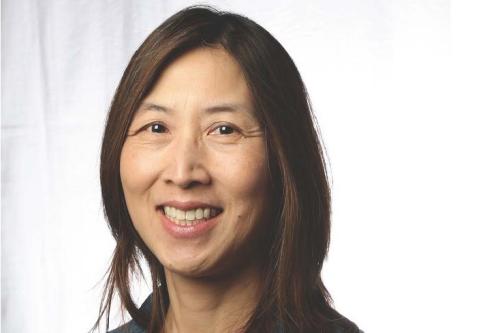
Maureen A. Su, M.D.
- Professor, Microbiology, Immunology and Molecular Genetics
- Professor, Pediatrics
- Associate Director, UCLA-Caltech Medical Scientist Training Program

Maureen A. Su, M.D., is a physician-scientist who cares for pediatric patients with autoimmune endocrine disorders and studies autoimmunity, anti-cancer immunity and sex differences in immunity. She seeks to develop targeted therapies for autoimmune diseases and devise strategies to enhance the efficacy of current cancer immunotherapy strategies.
Su utilizes both mouse models and patient samples to investigate the genetics of autoimmune diseases. One of Su’s approaches is to study rare Mendelian autoimmunity syndromes to determine the contributions of a particular gene to developing autoimmunity. She has focused on autoimmune polyendocrinopathy syndrome type 1, a rare condition caused by mutations in the autoimmune regulator, or Aire, gene, and seeks to understand the disease mechanisms underlying this condition.
Her recent studies have shown that in the course of regulating or preventing autoimmunity, Aire also prevents effective anti-tumor immunity. Su has further demonstrated that administration of biologic inhibitors can transiently break Aire-mediated central tolerance. These findings have the potential to enhance the efficacy of current cancer immunotherapy strategies.
One such cancer immunotherapy strategy, checkpoint inhibitor immunotherapy, has revolutionized the treatment of cancer. However, its utility is dampened by the increased risk of developing immune-related adverse events, or IRAEs, resembling autoimmune disease. Su is investigating the mechanisms of IRAEs to understand how to prevent and treat these unwanted side effects without adversely affecting anti-cancer immunity.
Research Projects
- Understanding epigenetic regulation of immunity
- Examining the role of sex differences in immune response to develop sex-based approaches to disease screening and treatment
- Developing strategies to prevent immune-related adverse events that may result from checkpoint inhibitor immunotherapy A type of treatment that uses the body's own immune system to fight cancer, infections and other diseases. This approach has revolutionized cancer care and is also being applied in experimental treatments for HIV, lupus and other conditions. immunotherapy A type of treatment that uses the body's own immune system to fight cancer, infections and other diseases. This approach has revolutionized cancer care and is also being applied in experimental treatments for HIV, lupus and other conditions. for cancer without reducing the efficacy of this life-saving treatment
- Investigating how the Aire gene, which plays a critical role in preventing autoimmune diseases, restricts the immune response against cancer
-
Medical Board Certification
- Pediatric Endocrinology, American Board of Pediatrics, 2009
Fellowship
- Pediatric Endocrinology, UC San Francisco Department of Pediatrics & Peds Specialties, 2008
Residency
- Pediatrics, UC San Francisco Department of Pediatrics & Peds Specialties, 2004
Degree
- M.D., Harvard Medical School, 2000
-


